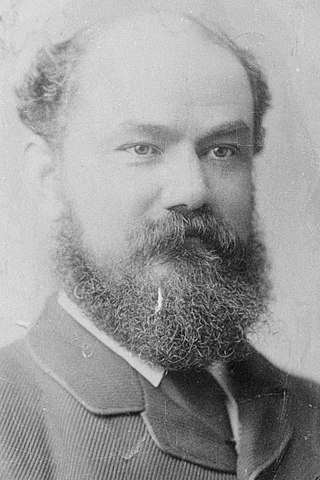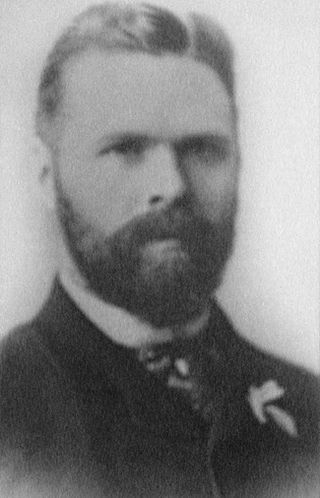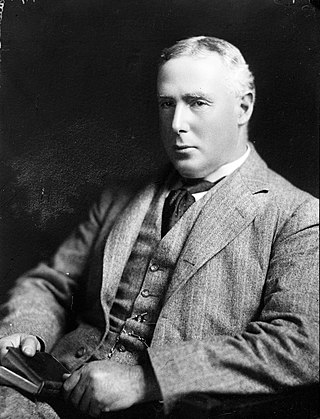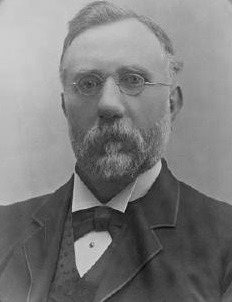| | |||||||||||||
| |||||||||||||
| |||||||||||||
| |||||||||||||
The 1902 Wellington City mayoral election was part of the New Zealand local elections held that same year to decide who would take the office of Mayor of Wellington for the following year.
| | |||||||||||||
| |||||||||||||
| |||||||||||||
| |||||||||||||
The 1902 Wellington City mayoral election was part of the New Zealand local elections held that same year to decide who would take the office of Mayor of Wellington for the following year.
After initially being in doubt as to whether he would seek a third term, incumbent mayor John Aitken allowed his name to go forward to be nominated to stand for re-election. [1] He was returned unopposed as no other candidates were nominated to oppose him. [2] It was the fifth election since 1875 that the mayoralty was uncontested. [3]
The statutory meeting of ratepayers to consider the loan proposals of the city council was held on election day, though attendance at the meeting was low. The ratepayers rejected the proposals by a large majority. [4] This low attendance had become commonplace in local politics and was known as "veto by abstention". [5]

Sir Francis Joseph Kitts was a New Zealand politician. Originally from the South Island, he served in the military and later was a civil servant before entering politics with the Labour Party. He was the Member of Parliament for Wellington Central between 1954 and 1960. He was also the longest-serving Mayor of Wellington, holding the post from 1956 to 1974. He was also a member at various times of several other local bodies and was still an elected official at his death.

Sir William Appleton was a New Zealand local body politician, advertising agent and leading company director. He was Mayor of Wellington for two terms from 1944 to 1950 after serving as a city councillor from 1931 to 1944. He was knighted in 1950.

The 1901 Wellington City mayoral election was part of the New Zealand local elections held that same year. In 1901, elections were held for the Mayor of Wellington plus other local government positions including twelve city councillors. John Aitken, the incumbent Mayor, was re-elected to office as Mayor of Wellington, beating Thomas Wilford. The polling was conducted using the standard first-past-the-post electoral method.

The 1910 Wellington City mayoral election was held to determine the next Mayor of Wellington. The polling was conducted using the standard first-past-the-post electoral method.
The 1921 Wellington City mayoral election was part of the New Zealand local elections held that same year. In 1921, elections were held for the Mayor of Wellington plus other local government positions including fifteen city councillors. The polling was conducted using the standard first-past-the-post electoral method.

The 1933 Wellington City mayoral election was part of the New Zealand local elections held that same year. In 1933, elections were held for the Mayor of Wellington plus other local government positions including the fifteen city councillors, also elected biannually. Thomas Hislop, the incumbent Mayor sought re-election and retained office unopposed with no other candidates emerging. The polling was conducted using the standard first-past-the-post electoral method.

The 1941 Wellington City mayoral election was part of the New Zealand local elections held that same year. In 1941, elections were held for the Mayor of Wellington and fifteen city councillors plus seats on the Wellington Hospital Board and Wellington Harbour Board. The polling was conducted using the standard first-past-the-post electoral method.

The 1944 Wellington City mayoral election was part of the New Zealand local elections held that same year. In 1944, election were held for the Mayor of Wellington plus other local government positions including fifteen city councillors. The polling was conducted using the standard first-past-the-post electoral method.

The 1876 Wellington City mayoral election was part of the New Zealand local elections held that same year. William Hutchison, the incumbent Mayor sought re-election and retained office unopposed with no other candidates emerging.
The Wellington Citizens' Association, was a right-leaning local body electoral ticket in Wellington, New Zealand. It was formed in 1911 by merging the selection process of council candidates of several civic interest groups and business lobby groups. Its main ambitions were to continue to control the Wellington City Council, reduce local spending and deny left-leaning Labour Party candidates being elected.

The 1959 Wellington City mayoral election was part of the New Zealand local elections held that same year. In 1959, elections were held for the Mayor of Wellington plus other local government positions including fifteen city councillors. The polling was conducted using the standard first-past-the-post electoral method.

John Gibbs Churchill was a New Zealand trade unionist and local politician. For six years he was the mayor of Otaki.

The 1877 Wellington City mayoral election was part of the New Zealand local elections held that same year to decide who would take the office of Mayor of Wellington.

The 1882 Wellington City mayoral election was part of the New Zealand local elections held that same year to decide who would take the office of Mayor of Wellington.

The 1884 Wellington City mayoral election was part of the New Zealand local elections held that same year to decide who would take the office of Mayor of Wellington.

The 1889 Wellington City mayoral election was part of the New Zealand local elections held that same year to decide who would take the office of Mayor of Wellington for the following year.

The 1890 Wellington mayoral election was part of the New Zealand local elections held that same year to decide who would take the office of Mayor of Wellington for the following year.

The 1891 Wellington City mayoral election was part of the New Zealand local elections held that same year to decide who would take the office of Mayor of Wellington for the following year.

The 1893 Wellington City mayoral election was part of the New Zealand local elections held that same year to decide who would take the office of Mayor of Wellington for the following year.

The 1898 Wellington City mayoral election was part of the New Zealand local elections held that same year to decide who would take the office of Mayor of Wellington for the following year.